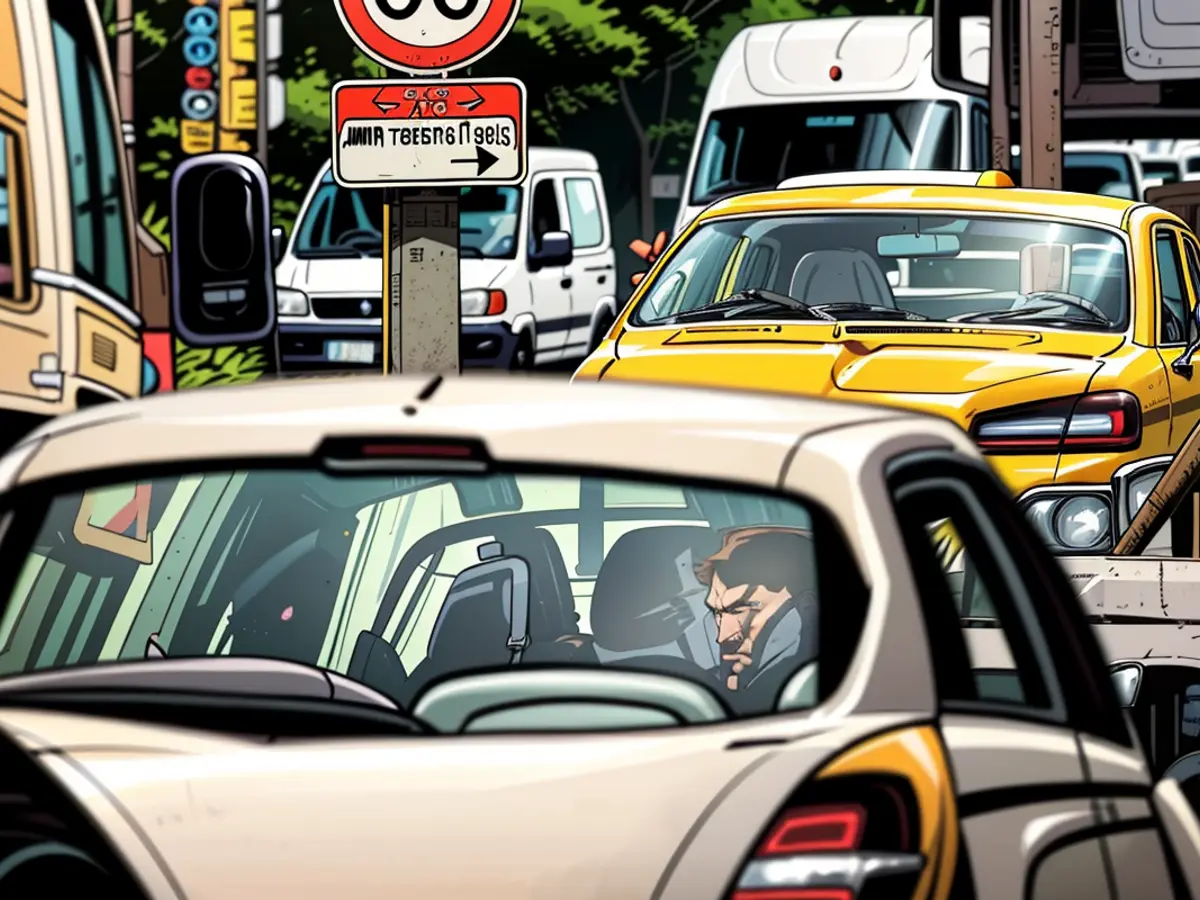traffic - Decision on Tempo 30 on Middle Ring by year-end
The introduction of a Tempo-30 zone, which aims to improve air quality on a busy section of the Inner Ring in Munich, is expected to be put to the test in a few months. Munich's Mayor Dieter Reiter (SPD) told radio station "95.5 Charivari" that he expects the city council to make a decision by the end of the year. However, the current measures are still ongoing.
According to the city, the development of air quality and traffic flow, as well as potential traffic rerouting, are being continuously monitored. However, at least three months' worth of data needs to be evaluated for an assessment. "Before these evaluations are available, it is not meaningful to change the existing regulation."
Since early June, cars have been restricted to a 2.5 kilometer long section of the important traffic ring around the city center, not allowed to exceed 30 kilometers per hour. The city council opted for this regulation instead of expanding the driving ban for older diesel vehicles that meet the Euro 5 emission standard. This decision was criticized as insufficient by the German Environmental Aid, which argued that it would not significantly improve air quality according to their assessment.
- Despite the ongoing monitoring of air quality and traffic flow in Munich's Tempo-30 zone, Mayor Dieter Reiter of the SDP has expressed his expectation for a city council decision on its future by New Year's Eve.
- The introduction of the Tempo-30 zone in Munich's Inner Ring, aimed at reducing traffic emissions and improving air quality, is being closely observed by Bavaria's local authorities.
- The German Environmental Aid has criticized the city council's decision to restrict car speeds instead of banning older diesel vehicles, arguing that it would not significantly contribute to enhancing the city's environment and climate.
- Munich's Auto industry and commuters have been affected by the implementation of the Tempo-30 zone, with potential implications for traffic flow and New Year's Eve celebrations in the city's center.
- In order to accurately assess the effectiveness of the Tempo-30 zone, a minimum of three months of data collection is necessary to properly evaluate its potential impact on air quality and traffic flow in Munich's busy Inner Ring.








